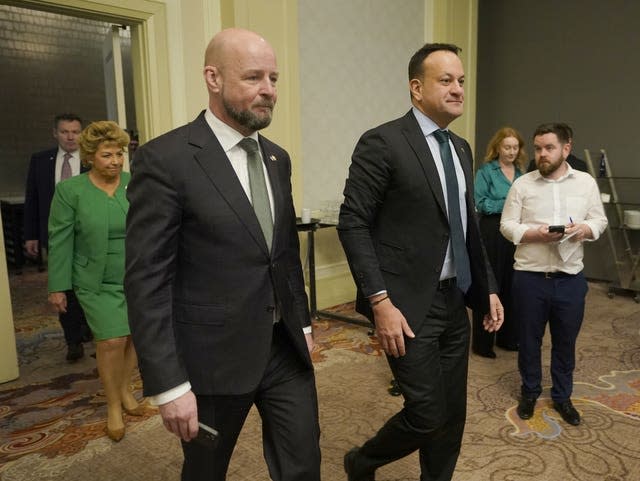Nolan says lessons need to be learned from Covid inquiry
One of Ireland’s leading public health figures during Covid-19 has said he does not know if he still has all his messages from the pandemic.
Professor Philip Nolan, the former chair of the the Government’s virus modelling unit, made the admission after Taoiseach Leo Varadkar said he expects the inquiry to get “well under way” this year.
Mr Varadkar said a memo on the terms of reference for the Covid-19 inquiry is to be brought to Cabinet in “the next couple of weeks”.
However, Mr Varadkar told reporters in Washington, DC that it would be “tricky” to find five people to sit on the evaluation panel who, ideally, had no involvement in managing the pandemic or had not expressed prejudicial views.

He added: “But we are determined to do it. Other countries had their evaluations and inquiries, we should have one too.
“And it is intended that there will be a public element to it. So that will allow people to tell their story and recap their lived experience and that’s an important part of it.”
The inquiry would look at the State’s handling of the pandemic, which is expected to include the role of the National Public Health Emergency Team (NPHET)
Prof Nolan, who was chair of NPHET’s Modelling Advisory Group, said it is important that lessons are learned from the inquiry as he believes another pandemic is “inevitable” in coming decades.
However, he said he would need to see the terms of reference to know how or if he would be engaging with the inquiry.
Asked if he had kept all his WhatsApp messages from throughout the pandemic which may useful to an inquiry, Prof Nolan said: “I don’t know to be honest with you, it’s quite some time ago.”
Prof Nolan said he hoped the Irish inquiry would be different to the “adversarial or judicial” approach taken in the UK.
He said that approach did not lead to open, transparent and honest conversation.
Asked what NPHET got right during the pandemic, Prof Nolan said a broad range of expertise had been mobilised quickly with a high level of trust between public health officials, Government and the public.
On the other hand, Prof Nolan said: “If there was one thing that we could have responded on quicker – masks would be a good example.
“You know, we perhaps moved too slowly to encourage people to wear masks.”
He added: “I’d be more willing to take low risk decisions, even though they might not be fully justified by the evidence – to say: ‘Well, it’s not going to do any harm so why don’t we give it a try’.”
He also said there were “occasions” where communication on modelling was not put across well.
Prof Nolan, now director-general of Science Foundation Ireland, made the comments following an event in Washington, DC where Mr Varadkar presented the St Patrick’s Day Science Medal to computer-science expert Dr Eammonn Keogh and technology CEO John Harnett.


